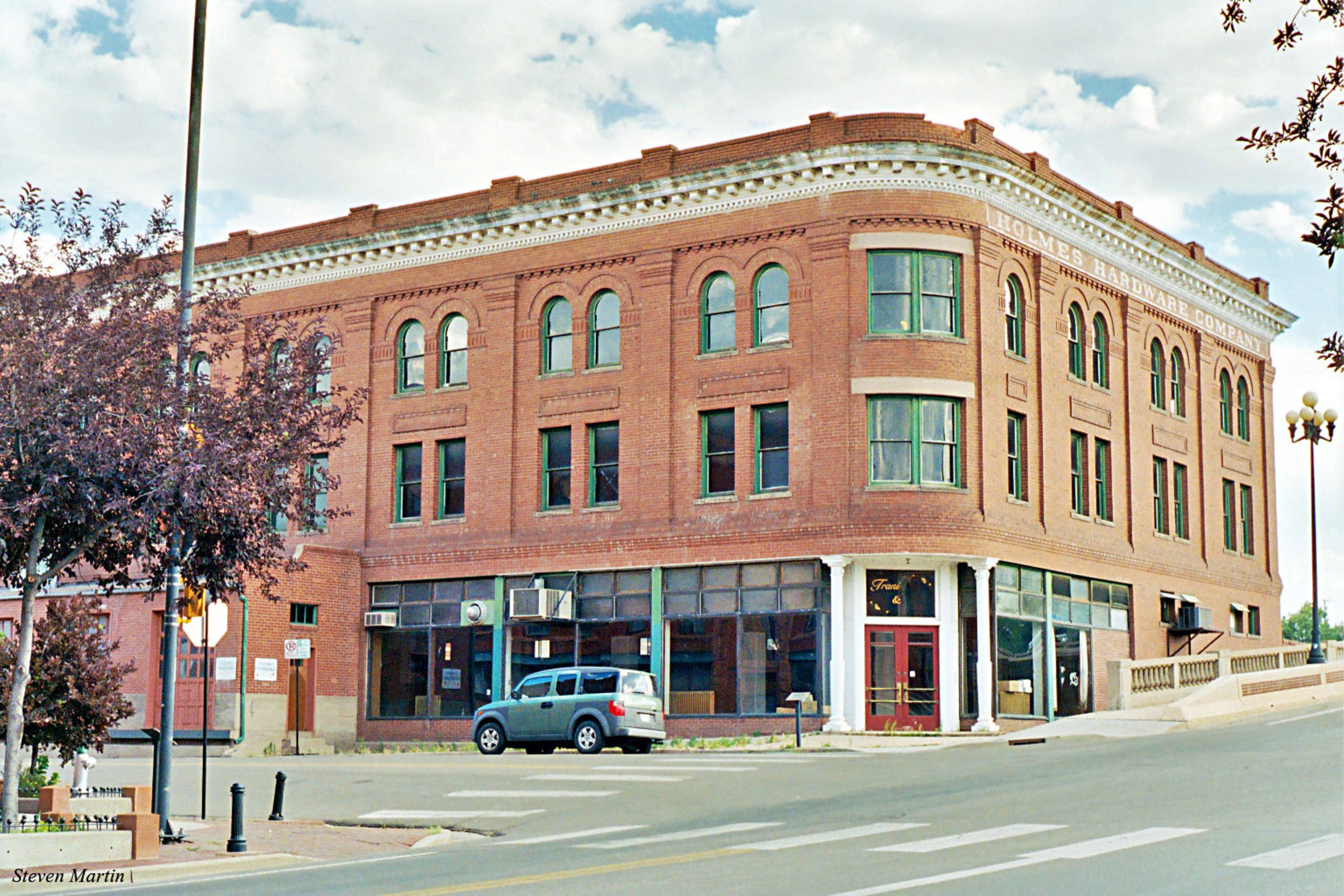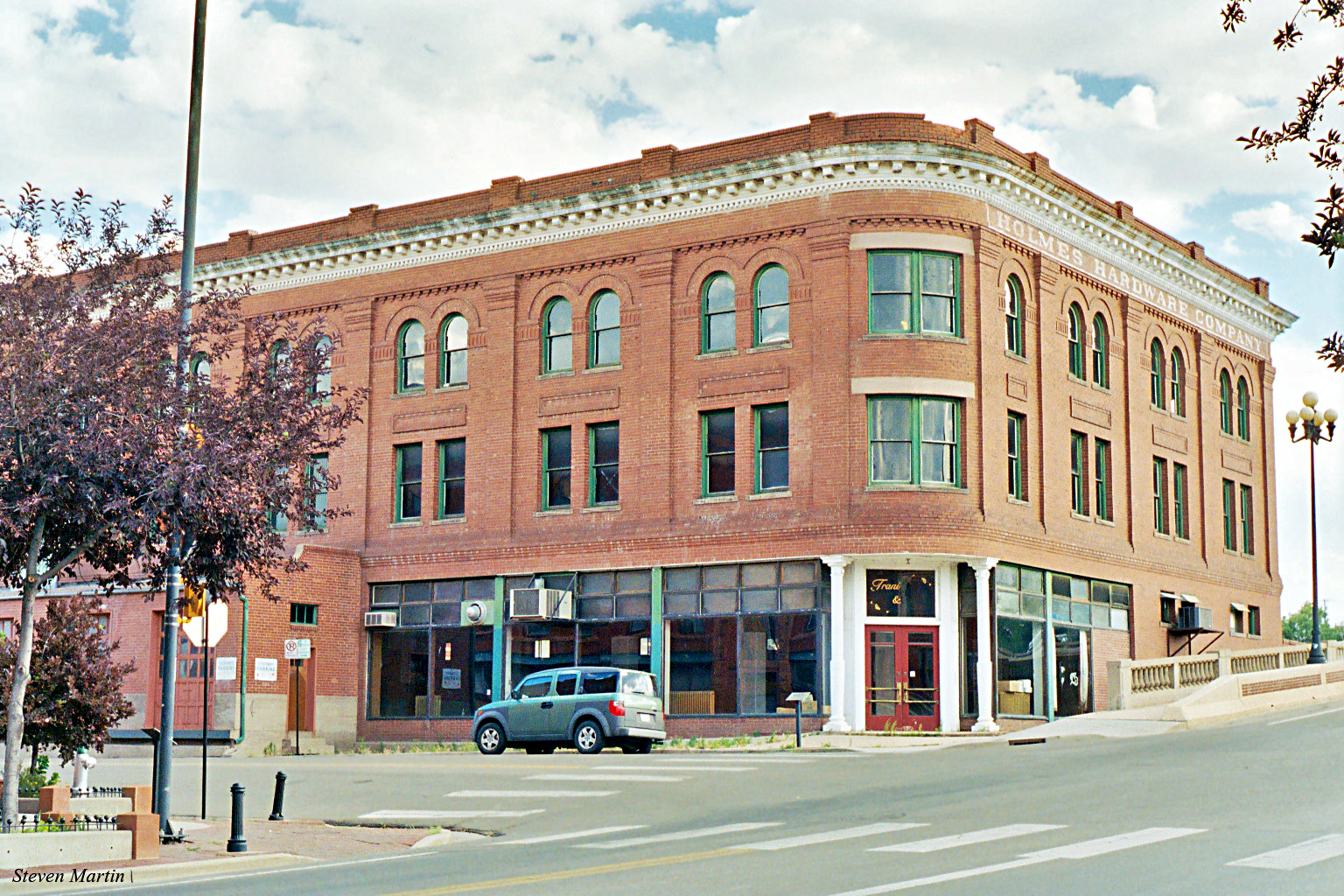COMMERCIAL LOAN
Fuel & Iron Food Hall
What CCEF
Financed
![]()
Solar Photovoltaic (PV) System
About the Project
Project investment: $1,500,000
Locations: Pueblo, Colorado
Environmental highlights:
- Solar PV System
- Electric Kitchen Equipment
Key terms:
- Solar Photovoltaic (PV) System: one or more solar panels combined with an inverter and other electrical and mechanical hardware that use energy from the sun to generate electricity
- Adaptive Reuse: reusing an existing building for a purpose other than which it was originally built or designed for, also known as “recycling and conversion”
“Because CCEF is a mission lender, we were able to qualify for and close the loan. We wouldn’t have had that opportunity from almost any lender.”
– Nathan Stern, Director of Development
The Story
Fuel & Iron is not only Pueblo’s first food hall; it’s also a commissary kitchen and a modern housing complex in the historic Holmes Hardware Building, part of the Union Avenue Historic Commercial District in downtown Pueblo.
A classic example of adaptive reuse, the historic downtown building was destroyed in a fire in 1915 and rebuilt with an exceedingly stout structure, according to Nathan Stern, Director of Development for Fuel & Iron Realty. The building remained mostly vacant from the late 1970s until the previous owners bought it at auction in 1993. By the time Stern and his development partner, Zach Cytryn, got hold of the building, it was essentially a perfect shell for what would eventually become Fuel & Iron Food Hall.
“Picture a Home Depot if you take away all the inventory—what would be left?” Stern said. “There was nothing in it; no partitions, nothing other than this huge lift to get materials to the upper floors. It was just an incredible shell and beautiful building, the right size and location, that came with two aces of land. It really checked every single one of the boxes we had created for what we wanted.
Stern and Cytryn came from a real estate background representing restaurants, when they noticed a lot of their best clients were coming out of food halls—namely Avanti in Denver.
“We became big believers in the food hall model,” Stern said. “We think every community should have one because it’s such a vital component of food and beverage infrastructure.”
CCEF funded the development of Fuel Kitchens, the incubator commissary kitchen that includes a mass release cold/dry storage warehouse members can rent out, built on a quarter of the building that was previously office space. Members will have 24/7 access to a variety of kitchen equipment, and ideally, Stern said, they’ll be entrepreneurs making packaged products, food truck businesses, and caterers that don’t need a retail store front.
“In Pueblo, there are a lot of entrepreneurs making food in their homes using cottage food laws, but they’re quickly outgrowing the amount of variables to sell and running out of room in the kitchen,” Stern said. “They often can’t make enough using the [cottage food] law to be able to convince a lender that they’re a good bet to build out their own kitchen, so they kind of get stuck.”
The incubator commissary kitchen and food hall serve as a bridge for these entrepreneurs to grow their customer base, team, and operating history—so that when they’re ready to open their own brick and mortar, they’re prepared.
Aside from the food hall component, Fuel & Iron also includes 28 affordable housing units located on the second and third floors of the building. “We didn’t really set out to be housing developers, but we noticed that dense downtowns are really important for the success of downtown businesses,” Stern said. The affordable housing units are priced at 60% Area Median Income (AMI), in the hopes that food hall employees and other downtown service workers can afford to live there.
The developers are taking a staged approach to electrification, with the intent of eventually converting the building to all-electric systems.
“If we can offset the energy cost with renewable sources, that’s just going to be a huge benefit for the business,” Stern said.
Phase one will involve all electric kitchen equipment, solar panels, and controls for walk-in coolers to manage demand peaks, to be completed by summer 2023. Phase two will consist of upgrading the electrical service to accommodate higher loads, adding a second electric heat pump rooftop unit (RTU) for space heating and cooling, a heat pump water heater, and electric make-up air unit (MUA), to be initiated by summer 2024.
“Because CCEF is a mission lender, we were able to qualify for and close the loan,” Stern said. “We wouldn’t have had that opportunity from almost any lender.”
Fuel & Iron Food Hall is set to open to the public later this spring. Visit fuelandironfoodhall.com to learn more.
Featured photo credit: Steven Martin




